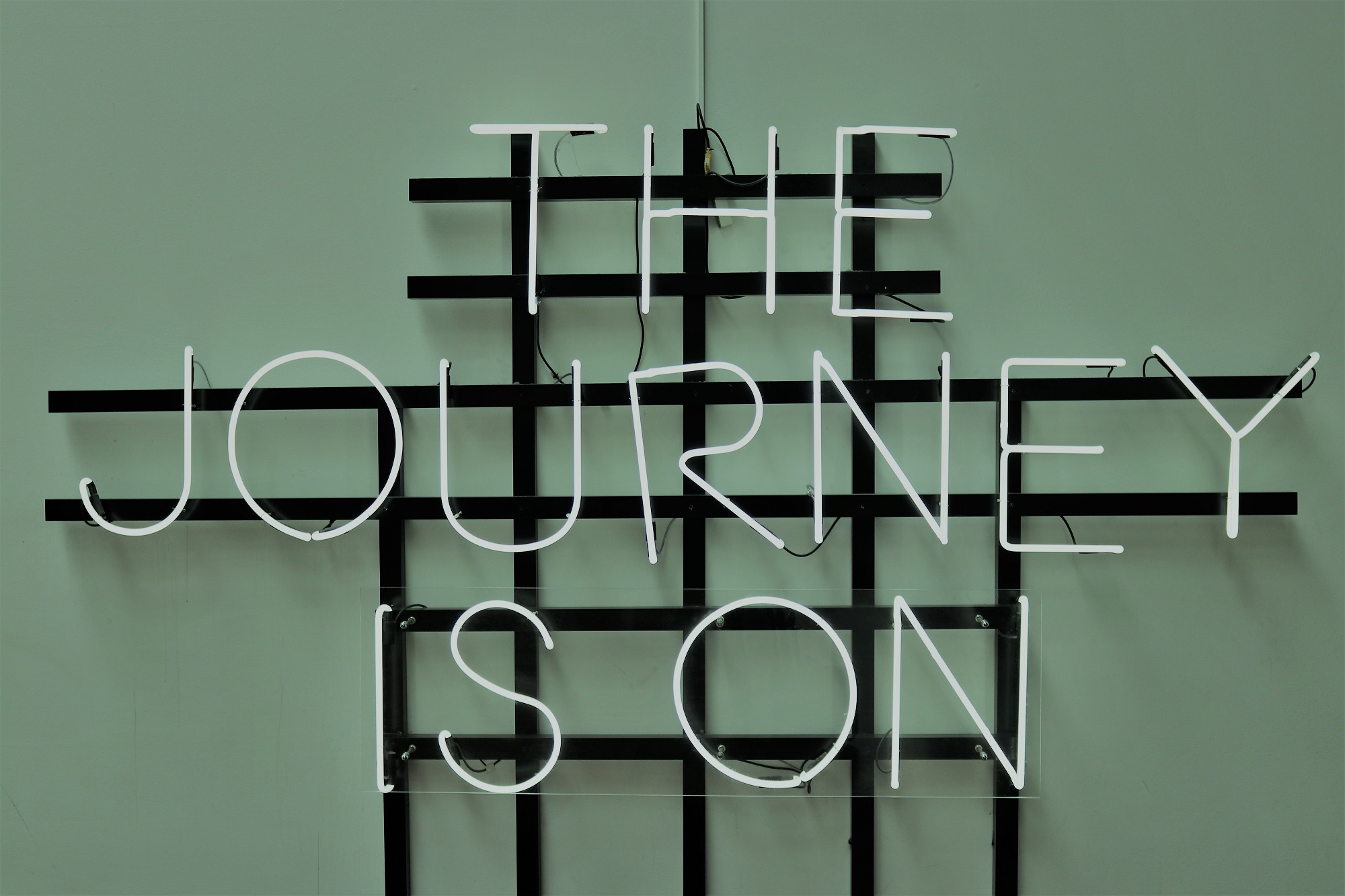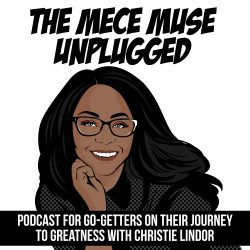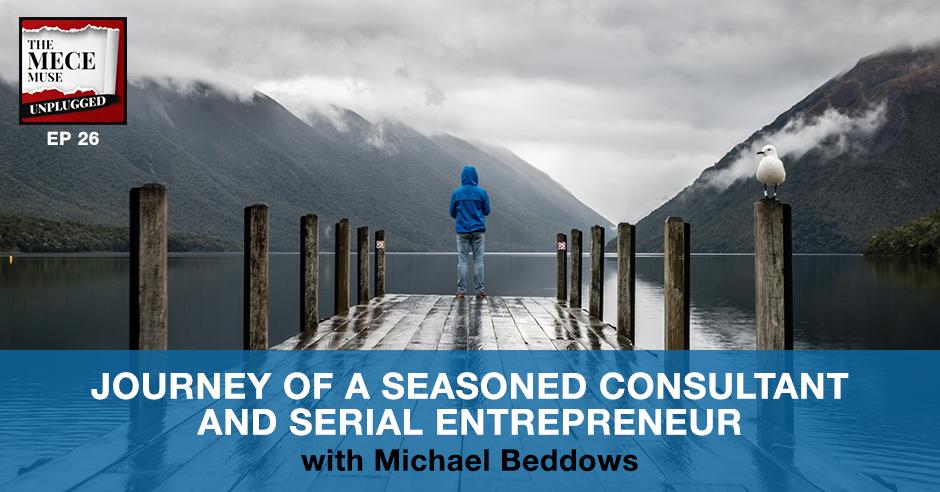AMA (Ask Me Anything) interview with Michael Beddows, a seasoned consultant, serial entrepreneur, and founder of the IT Consulting Group & Enterprising Group.
“Good consultants deliver value, but great consultants teach their clients how to deliver value for themselves.”
Michael shares his career journey going in and out of consulting and serial entrepreneurship as the founder of multiple start-ups. He discusses four types of consultants – contractors, advisors, freelancers, and coaches- and how he did work in data mining, customer relationship management, content management, knowledge management, and enterprise collaboration. Michael now advises clients on customer experience and user experience.
Christie and Michael discuss the importance for consultants to have coaches as part of their career support system to go from good to great. Michael shares his new venture, Enterprising Group, a peer to peer learning network for enterprise practitioners on various topics. The first component of the Enterprising Group is called the IT Consulting Group, which focuses on providing coaching services to teach professionals how to be an IT Consultant.
“How can you achieve your 5-year plan in the next 6 months?”
Michael provides additional advice for younger consultants
- Do not be intimidated by older, more experienced professionals
- Begin working on your long term career plans now instead of later
- Keep an eye on the impacts of artificial intelligence
- Don’t underestimate the value of taking notes
Listen to the Episode Here:
Podcast: Play in new window | Download | Embed
Subscribe: Apple Podcasts | Email | TuneIn | RSS | More
On this episode, we’ll be doing a segment that I call AMA, Ask Me Anything. If this is your first time tuning in, AMAs are when I have the utmost pleasure of connecting with either a season or former consultant. They share their career journey and give you advice. We’ve got Michael Beddows. He is a consultant, seasoned consultant, entrepreneur, as well as the Founder of the IT Consulting Group. Super cool coaching services that he can provide. I want you to take heed to some of the things Michael shares. I’ve known Michael for many years. He’s been a high performing consultant. He’s always on the cutting edge. I love talking to him and brainstorming. He’s always got some great perspectives. I think you’ll enjoy his conversation.
If you want to be a great consultant, I highly recommend you attend TEDx Talks. I had the utmost pleasure of attending the TEDx Beacon Street talks here in Boston. I actually was part of the team. I volunteer, got behind the scenes. I was able to connect with speakers. It was so fabulous. I want to highlight some of my favorite talks. I’m adding that to my mental map of a great consultant. Great consultants should really consider attending this TED Talks. The one I attended was a completely free for someone to register and the amazing thing that they talk about and the ideas had shared, I think anyone that really want to be on a cutting edge of any particular industry, those are the places to be or even to do your own TED Talks. TEDx Beacon Street team, they’re working really hard to get the recordings up and running or the various different talk that took place.
Interview with Michael Beddows
Michael, thank you for taking time to join us on The MECE Muse Unplugged. How are you doing?
I’m doing great, Christie. Thanks for inviting me.
It’s going to be a cool conversation and you’ve just got such a colorful background as a consultant and an entrepreneur. Maybe before we get started, if you can take a moment to introduce yourself to the go-getters of The MECE Muse Unplugged.
I’ve been working in a variety of enterprise technology fields for about twenty years now. About two thirds of that has been spent in consulting and the remaining third as an entrepreneur. As a consultant, I’ve worked independently for boutique firms and also for software vendor professional services. I think there being four types of consultants depending on whether or not they’re implementing and depending on whether or not they’re working with clients on full time or part time basis. I segment them into contractors, advisors, freelancers and coaches. For me I’ve been more of a contractor not only the strategy and advising for clients but also the implementation as a project or product manager about 80% of the time. Then more of a strategic adviser for about 20% of the time.
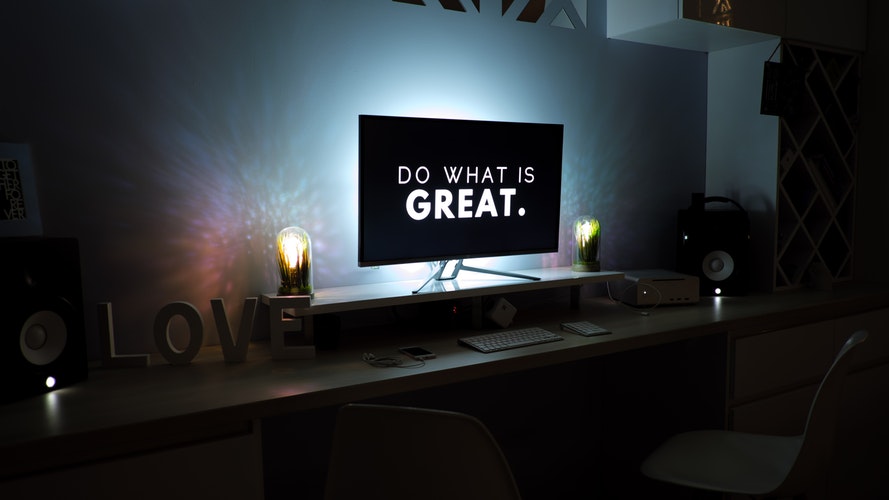
At what point in your journey did you decide to go into consulting and how did you make the pivot from the different types of consulting work you’ve done? Because you’ve done a lot of great stuff, a lot of great experiences, so how did you make that shift into entrepreneurship and that ebb and flow? If you can just give a little bit of how you got started.
I don’t think I ever decided to become a consultant. I think it just happened to me in my very first job. My boss was offered a position at a boutique consultancy in Boston and he asked me to join him and after some initial projects in New York and Switzerland, I was hooked. I think the travel aspect of consulting was something that I really enjoyed especially as a young professional. In terms of entrepreneurship, I’ve always been an entrepreneur from the very start. That was something that was always in the background. Even as I was consulting, I always thinking of what products I launched on my own. I was always launching products for customers and I’m always thinking how can I get my own product into the market as well.
You became an accidental consultant. Do you have a specific domain that you kind of sum up that’s in your expertise or are you a generalist?
I think I’ve been to a specialist at various different times. I started my career doing data mining actually my graduate degree was in Artificial Intelligence. I immediately want to apply that in business and started doing data mining for telecoms and financial services. Then that started to get me into customer relationship management. I started my career as more like a technical implementer doing both data analytics and also software development. Eventually I got into project management. Once the internet came out and content management became popular starts to get into that field which then took me from web content management to enterprise content management, which took me to knowledge management.
Then I started thinking about how technology impacts people specifically professionals in large corporations and how technology can bring people together to be far more productive. Then I got into enterprise collaboration which was a field that I was in for quite some time. Then as I’ve launched different startups which have been related to collaboration. I’ve started to get heavily involved in sales and marketing. It’s really critical for entrepreneurship and I would also argue even for consulting. I’ve started to get into things like customer experience management and then also user experience most recently as well. I have kind of run the gamut in terms of different fields.
I think it’s really good because when you think about consulting and how cyclical it could be, you’ve ebbed and flow then adopted as the needs of the markets changed. When you look at like all the different types of work you’ve done, what would you say the most fun area that you focused on and why did you enjoy that?
I think the most fun is when you’re doing work that surprises you. When you’re doing work and you deliver something that you never thought you’re actually capable of producing. You’re saying to yourself, “Where did that come from?”I was just thinking of an example when I was consulting to one of Canada’s largest law firms and I was giving a presentation to the partners at the law firm. Everybody in that room had a lot more experience than I did and it was probably a lot smarter than I was. They’re all listening to what I have to say and I’m standing up there giving this presentation and I’m hearing the words coming out of my mouth and I’m thinking, “Who’s saying this?” You’re slightly amazed by what you’re saying or that you’re actually capable of doing that. I think those are really fun moments when you’re in this moment of flow, when things are just naturally coming out of you. That just worked out really well.
It’s how you ebbed and done different things. I have as well, and you’re right. I think you get to a point that you can literally, as a consultant, you get dropped into unknown territory. You’re able to ramp up, get up to speed and be able to really articulate and have a pulse in an area that sometimes surprises ourselves as well.
It’s really how people recommended that you come up with like a five-year plan for your career and I think that’s absolutely impossible at least in consulting it is. A six-month plan maybe but five years, you just never know where your career is going to take you. You just have to some extent play by ear.
Share with us like a story of what was like a defining moment in your consulting career that really shaped your values.
I think one moment was when I realized that that’s really important to give the people that you’re working with ownership of the solutions that you’re delivering. Often on projects I’ve worked with large numbers of stakeholders, but then one time one client suggested that I call them executive producers which I thought was really clever. Because they ended up becoming co-creators of the solution and the best advocacy you could ever hope for on a project. One turning point was realizing that I should not be afraid to give my clients more control. I think as an early consultant, you have this feeling that you’ve got to jump in and have all the answers and have all the solutions. Whereas when you build those solutions with your clients, it’s a much better position to be in.
I actually have a whole chapter that just talks about taking your clients along for the journey, it really highlights some of those points. It has to be a collaboration because I always say the client knows their business best and they have to be part of the solutioning. They have to be part of that journey in order for it to be realistic, that it can be implemented.
I think it also points me to learn to some degree how to do it themselves as well. You’re talking early about what makes a great consultant. I think good consultants deliver value and great consultants teach their clients how to create value for themselves. I think that’s something that consultants need to keep in mind.
I know you are in the process of a new venture, the enterprising group. Maybe you can share with our go getters a little bit about what enterprising group is and where you are in that launch.
Enterprising group is going to be a peer-to-peer learning network for enterprise professionals specifically practitioners of different enterprise topics. The plan is I’m going to be partnering with consultants for advisory services on every enterprise topic you can think of whether it be employee related issues, business process, IT, and customer issues as well. I’m launching the first site of this network and it’s going to be called IT Consulting. It’s going to be a site where I’m coaching professionals on how to become IT consultants. I mentioned that I’ve been doing a lot of contracting and some advisory work, but now I’m making this transition into coaching which is going to be very new for me.

What made you decide to do that?
Someone had mentioned to me and said, “Have you ever thought of starting a business on helping people to do what you’ve been doing for years?” I thought, “No, actually I haven’t.” I’d realized when I stopped and thought about it, I’ve amassed over twenty years of experience. I probably have a lot to offer professionals and it also made me realized, I’ve worked on projects. I’ve actually had clients ask me more about what is it like to be consultant. I’m sure that our clients are probably looking at us thinking, “I could do what they do,” and get paid twice as much. I think that they’re already thinking about making that transition but need some guidance on how to make that happen.
Coaching is definitely an area that I think any great consultant or anyone striving to be great in their journey should really look at having another support mechanism for their career whether a person is a freelance consultant, they work at a firm, or they’re new. I think people sometimes underestimate at least it seemed in the past, maybe the trend is changing. People tend to underestimate the value of coaching in a business environment. I don’t know if you remember back in the day, but it felt like when you heard the word coaching, it was almost like it was a deficiency. Someone needs to be coached. It’s like they don’t know what they’re doing. It’s so not like that. When you think about like all athletes, I don’t care how many medals or how many championships they’ve won. Usually the first person as by their side is an amazing coach. Why would that be any different in the business setting?
I think every admired person you can look at is probably have a coach behind them or several coaches working with them. I think that time is something that the money just can’t buy. I think by having a coach it can accelerate your career. You’re working with someone that has already done it. There’s this mentality that they look at what you offer and think, “I can do that myself.” Of course you can. Nobody’s saying that you can’t do yourself, it’s just going to take you six months to a year but why do that when you can work with someone who can get you going in one or two months. It’s all about time and convenience and really accelerating the process.
You mentioned twenty plus years, you got a story background. I know you, you’re always like on the cutting edge. When I think about like crossing the chasm and I think about that theory, you’re like an early adopter innovator. You’re always ahead of the curve. Knowing what you know now, Michael, what advice would you give your younger self?
There’s probably several things I can give to people starting a career early in consulting. I remembered when I started consulting back in my twenties. One is that I think comes up for young professionals, I just want to say don’t be intimidated by older professionals. Experience is very valuable for sure, but age doesn’t always translate into knowledge or wisdom. You’re there to do a job, so just focus on doing it and don’t let someone belittle you because of an age difference. I can give an example of when I was working at a financial firm in New York and we were talking about theorem. I suggested that maybe we should be monitoring channel performance and someone there said, “No one measures channel performance anymore,” and just dismiss the idea and just moved on. I kept my cool and didn’t take it personally and Joe just kind of kept checking in with them, making sure his voice is already can say. There was some friction there.
Years later, channel performance is really key with an Omni channel environment. Sometimes older people can make judgments on younger people and you can’t let that affect you. You just have to kind of keep moving forward. Another piece of advice I can give is something that I mentioned about having five year plans. I like this quote which says, “How can you achieve your five year plans in the next six months?” I think the purpose of that quote is to challenge your assumptions about what is going to take to make that five year plan happen.” What if you have to compress it in six months, how would you make that happen?” I think is really quite thought provoking. For consultants, I think that could better be applied than within the field of sales and marketing. I think consultants don’t see themselves as marketers or salespeople.
If they want to be a salesperson, they would’ve become a salesperson, not a consultant. We’re really living in an increasingly competitive world and those are skills that really need to be to be mastered. I think that they should start thinking about them now. Even if a consultant joins a large consulting firm and they look and say, “Yes, someday, in ten years I want to make partner.”What do partners do? They do business development which is a nice way of saying sales. I think they need to start thinking about, “How do I start doing that now in small steps?” By the time they move forward in their career, they can be ready to take on those new challenges. I also think to go off on a different tangent, I think consultants should keep an eye on AI, Artificial Intelligence. I really do think that machine learning is going to start eating into a number of tasks that have traditionally been the domain of consultants. For example, advising on detailed analysis or predictive modeling is going to be a task that’s going to be increasingly taken on by machines.
Consultants have to think, “How do they play in that new reality with some other work being overtaken? How are they going to add more value to that process in the future,” is something to be mindful of. Finally, this is just a very small minor note as a young professional. When I started on consulting engagements, I used to think that it was beneath me like, “Shouldn’t someone else be taking notes? I’ve got these degrees and this and that night, I don’t want to be taking notes. I’m here to solve problems. I’m here to deliver solutions, not take notes.” Twenty years later, I take notes all the time. I take notes before meetings, during meetings, after meetings. I keep a dating journal of everything that I work on and I think that not only do you solve your own problems by taking notes also when you send those notes to clients, you’re making your clients feel like they’re being heard and it’s really valuable. Don’t feel bad about taking notes. It’s one of the most valuable things you can do as a consultant.
This is exactly why you probably need to head up, Michael towards coaching services. He just dropped some really good key nuggets, so thank you Michael. Those insights were extremely helpful. I think depending on the type of perspective you have, some people see it as doomsday, others see it as the next coming of a gold rush. An AI from the perspective especially for any newbie or aspiring consultants, what are some of the things they need to do now to begin to prepare for that? Because with AI and just the avenue of the landscape is changing over the next five to ten years, people need to start ramping up on skills that I think are still being identified. We’re still trying to figure out what the workforce of the future looks like. I hear a lot of people talk about it, but I still don’t know if we really still on the cusp of turning that corner.
Even with my background in AI, I’m not sure if I can predict exactly how things are going to go. There’s just been so much change lately just because of the increasing computing power. I loved AI back in the ‘90s when I got started in it, but we never had the computing power that we have today, so it was never as easy to get things going as it is right now. It’s a really interesting field. It’s a very interesting to see how things are going to develop.
Thank you so much, Michael, for your time. Have you got any last parting remarks for the go getters?
No, thank you so much, Christie. It’s really been a pleasure to be here and as always I always enjoy our discussions.
Go-getters, if you have a question, feedback, just drop us a line at MECEMuseUnplugged@Gmail.com. Thank you Michael, and thank you to my go-getters. This is Christie Lindor signing out for The MECE Muse Unplugged pop-up podcast, and here is to your journey to greatness.
Links from today’s episode
Enterprising Group | IT Consulting Group
About Michael Beddows
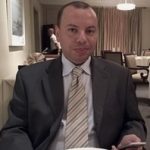 I provide consulting in emerging technologies and enterprise collaboration. My clients tend to be rapidly growing knowledge-based companies that use timely insights within collaborative networks to create new revenue streams or social benefits. When I say “knowledge-based”, I mean companies that create, maintain, and distribute “knowledge products”.
I provide consulting in emerging technologies and enterprise collaboration. My clients tend to be rapidly growing knowledge-based companies that use timely insights within collaborative networks to create new revenue streams or social benefits. When I say “knowledge-based”, I mean companies that create, maintain, and distribute “knowledge products”.
I like to collaborate across disciplines with experts in emerging IT technologies. I’m fascinated by new inventions that improve the quality and meaning of our lives. Whether it be big data or blockchain, augmented reality or AI, CX or cloud computing – technology has the potential to radically change the nature of work.
Of all the technologies I have worked with, collaboration software has been my favorite. I love the idea of technology bringing people closer together in order to accomplish more than they ever could alone. I’m grateful to have worked on various enterprise collaboration initiatives for some amazing companies, such as Bell Canada, Ford Foundation, ICTJ, Verizon Business, Coca-Cola Enterprises, Canada Health Infoway, Stikeman Elliot, and WaMu. Sometimes I’ve launched my own collaborative products, such as Trendr, VenturePods, and Projectstars. Collaboration technology evolves quickly and I’m excited to be creating the ultimate guide to designing your “collaboration stack”.
